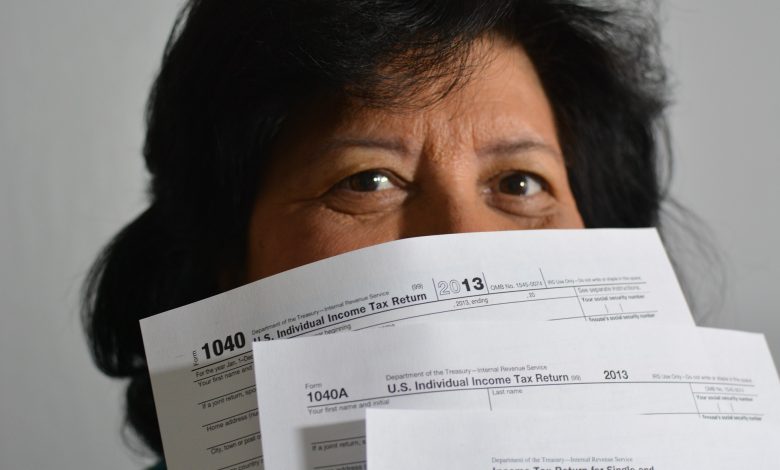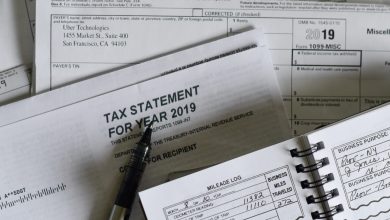How Much Do You Need to Make to File Taxes?

There are many things in life that we can reliably count on to be there year after year, and one of the most useful, yet irritating, of these things are taxes. Whether you live in a small town, the big city, or are hopping around the world traveling, you can be assured that the government is going to come calling for you to pay those pesky taxes. There are quite a few people who, through a host of systems, as well as your annual income, may be able to opt-out of filing their income taxes at the end of the year. We are going to dive into all the regulations that you must know whether you choose to file your tax returns or not this coming year.
Plan Early for Your Taxes
The most important advice we can give everyone regarding doing their taxes is to start preparing way in advance. You do not want to have to rush things and make mistakes that may cost you hundreds or possibly thousands of dollars. Even if you are sure you do not have to file a tax claim, having all your information organized is a must in case some issues pop up.

How Much Do You Need to Make Annually to Have to File?
There is a myriad of factors that go into whether you must file an income tax return at the end of the year, with your annual earnings, marital status, age, and a host of other factors playing a part. Whether you make enough to go over the first bracket of taxes is dependent on how you file your taxes. There is a filing system in place that separates everyone into categories, each with their own set of rules. Here is what you need to know.
Which Filing System Do You Fall Under?
Single
If you are not in a legally binding relationship and are currently under the age of 65, the minimum gross income you must make annually to have to file an income tax return is $12,200. On the other hand, if you are over the age of 65 and single, then that number jumps up to $13,850.
Married and Filing Taxes Together
When filing your taxes jointly, the age of you and your partner is taken into consideration. Once that is done, those under the age of 65 need to make roughly $24,400 together to have to file a claim. If both partners are over the age of 65, then that total goes up to $27,000. If only one partner is over the age of 65, then the price goes down a bit to $25,700.
Married but Filing Your Taxes Separately
For some reason, the government has decided that any married couple who is filing their taxes separately must do so as long as they make a gross annual income of a mighty $5. Yes, it is a bit strange, but there you have it.
Recent Widowers
For those whose spouse has passed away within the current tax year and have a dependent child, the government allows you to continue filing your taxes within the jointly married category. The age difference rule still holds, with those being both under the age of 65 having to make $24,400, $25,700 with one partner under 65, and $27,000 when both are over the age of 65.
Heads of Households
If you happen to fall under the head of a household status and choose to file your taxes under said category, you must make at least $18,350 a year if you are under 65 years of age, with that amount jumping to $20,000 a year if you are past the age of 65.
Dependent in a Household
There are a few factors that go into whether someone who has been claimed as a dependent in a household still needs to file a tax return: whether or not you earned income within the year; any passive income you may have generated; and the gross annual income you earned. After that, the same principals of age come into play, as well as whether you happen to be blind.
Single, Under the Age of 65, and Not Blind
If you fall into this category, you are only required to pay taxes under a few circumstances. The first being that you made more than $1,100 in passive income. Secondly, if you worked and earned over $12,200 within the year. Thirdly, if your gross income was higher than either the $1,100 in passive income or if you made over $11,850 in the year.
Single, Over the Age of 65, or Blind
There is some shift in whether you must file a claim once you are over the age of 65 or happen to be blind. If you’re making more than $2,750 passively, working and making more than $13,850, or if your gross income was higher than $2,750 or more than your earned income of $11,850 plus $2,000, you’ll have to file.
Single, Over the Age of 65, and Blind
If you happen to be both blind and over the age of 65, you are required to file a tax return if your passive income generated over $4,400. Earned income must reach over $15,500, or your gross income must be higher than the $4,400 passive income or $11,850 plus $3,650.
Married, Under the Age of 65, not Blind
Those who are married must keep in mind these factors when filing their taxes. If you make more than $1,100 in passive income, you must file a tax return. Those earning over $12,200, or who have a gross income of above $11,850 plus $350, must file as well. If you and your partner have chosen to file your taxes separately, then you must file a tax return if you made over $5 within the year.
Married, Dependent, 65 and older, or Blind
If you made more than $2,400 in passive income, you must file your taxes. Those who have a job and earn over $13,500 must file as well. If your gross income was larger than either the $2,400 passive income or you earned above $11,850 plus $1,650, then you must file also. Again, anyone filing separately from their spouse must file a tax return if they made above $5.
Married, Dependent, Over 65, and Blind
Those earning above $3,700 in passive income have to file a tax return. After that, if you earned more than $14,800 from work, you qualify as well. Those with a gross income of higher than $3,700 passively or an earned income above $11,850 plus $2,950 must file also. Yet again, do not forget that if you choose to file separately from your spouse, if you make above $5 in the year you must file your taxes.
Self-Employed
For those who are self-employed, if you happen to make over $400, then you are required to file a tax return with the IRS.
Students
Families can list you as a dependent up until the age of 19, but for those who choose to continue their education, the government allows families to claim their children as dependents up until the age of 24. If you happen to be claimed as a dependent, look above at the regulations to find out whether you fall into a category that requires you to file your tax returns. For those who do not fall into the eligible categories, it may sometimes be of benefit to file them regardless, as you may be able to deduct some money due to being a student or get tax credits that are afforded by the government to students.
Those Receiving Social Security Benefits
If you happen to be receiving social security benefits, you are not required to file a tax return, unless you happen to fall under some of the categories above in terms of passive or earned income, or if you are married and choose to file your taxes separately from your partner. Generally, only a percentage of your social security money is considered taxable depending on which category you fall into.

Should You File If You Don’t Need To?
Some situations warrant filing your tax returns, even if you do not fall under any of the categories written above. For example, if you happen to have had too many funds withheld on your federal taxes and wish to receive a refund, the only way to do so is to file your tax returns. If you choose not to do so, the IRS does not automatically refund you, and the money you may have gotten is lost. Those who have health insurance from a federal or state marketplace are required to file tax returns as well.
Taxes Everywhere
The government has created an interesting system that allows many of America’s low-income earners to opt-out of filing income taxes every year, with deductions, tax credits, and other systems helping save money. With close to 50 percent of most Americans not making enough money per year to require filing a tax return, it’s no wonder the payroll taxes are so high. Most of the Medicare, social security, and unemployment insurance available to most around the country comes from the taxes everyone pays through their earned income. For those who must pay taxes this year, the deadline for 2020 is Wednesday, April 15th.
To Summarize:
- Remember to check over every category to make sure you are not required by law to file a tax return.
- If you are not required, there may still be some benefit to filing your taxes.
- Students may receive school-related benefits, such as tax credits and refunds.
- Whether you are married and filing separately can play a big role in whether you need to file a tax return.
- Self-employed individuals must file taxes when generating over $400 a year in income.
- Those receiving social security generally do not have to file taxes, but there are some situations that warrant it.
- Whether or not you are required to pay taxes or simply choosing to, planning in advance so that you don’t make any mistakes that cost you money and time is paramount.



